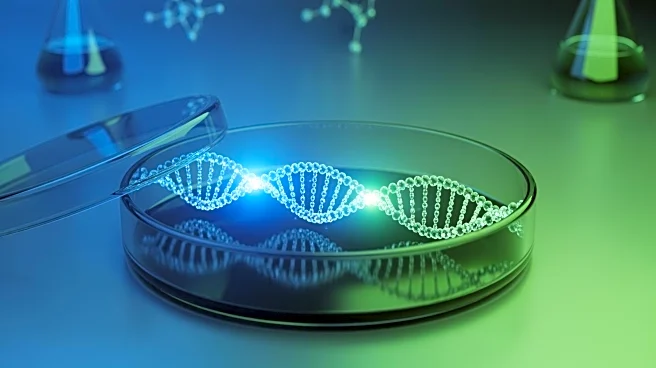What's Happening?
Tom Brady, former NFL quarterback, has revealed that his dog Junie is a clone of his late dog Lua, who passed away in December 2023. This cloning was facilitated by Colossal Biosciences, a biotech company
in which Brady is an investor. The company used blood collected from Lua before her death to create Junie. Brady expressed his gratitude for the technology, stating that it provided his family with a second chance with their beloved pet. The announcement coincides with Colossal's acquisition of Viagen Pets and Equine, another biotech firm. Brady is optimistic about the potential of these technologies to help families with pet loss and contribute to saving endangered species.
Why It's Important?
The cloning of pets represents a significant advancement in biotechnology, offering emotional relief to pet owners who have lost their animals. This development highlights the growing intersection between technology and personal life, as well as the ethical considerations surrounding cloning. For Brady, this is a personal investment that aligns with his interests in innovative technologies. The broader implications include potential applications in conservation efforts, as cloning technology could be used to preserve endangered species. This story also underscores the increasing role of celebrities in promoting and investing in scientific advancements.
What's Next?
As Colossal Biosciences continues to expand its capabilities, the company may explore further applications of its cloning technology. This could include more widespread use in pet cloning and conservation efforts. The acquisition of Viagen Pets and Equine suggests a strategic move to enhance their technological offerings. Stakeholders in biotechnology and conservation will likely monitor these developments closely, considering the ethical and practical implications. Brady's involvement may also attract more attention and investment in the field, potentially leading to new partnerships and initiatives.
Beyond the Headlines
The ethical dimensions of pet cloning are complex, involving questions about the nature of life and the implications of replicating living beings. While cloning offers emotional benefits to pet owners, it also raises concerns about the commodification of life and the potential for misuse. Additionally, the technology's application in conservation could shift traditional approaches to preserving biodiversity, prompting discussions about the balance between natural and artificial interventions.










